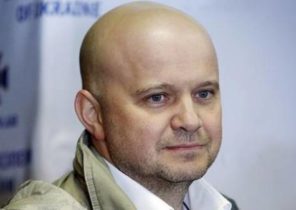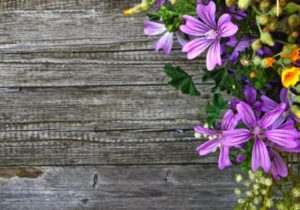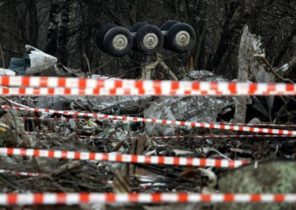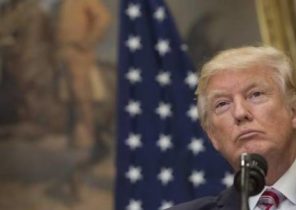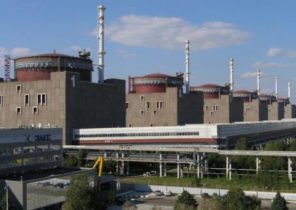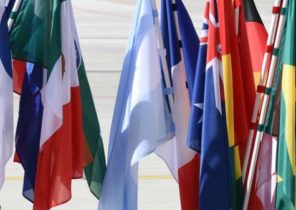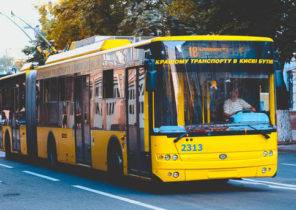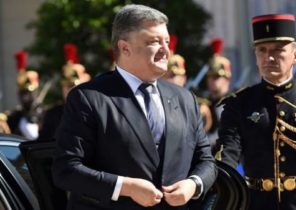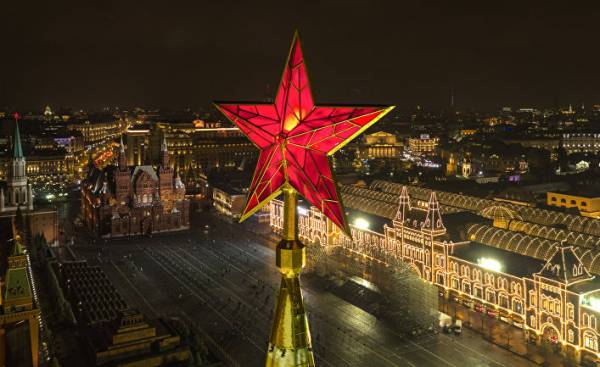
Russia — a country that is easy to get. Expedited procedures in the Moscow airport, including passport control, do not allow passengers to linger and go straight to the city center to the hotels, the road to which for a six-lane highway takes about an hour.
At the hotel a warm welcome, against which some inconvenience in the room recede into the background. The first surprise is the presence in the hotel of various foreign Newspapers or mimeographing copies, including English: The New York Times, Le Figaro and The Wall Street Journal and local newspaper, articles that contain mild criticism of President Vladimir Putin, and emblazoned on the cover photo of Jimmy Stewart from the movie in which he plays a journalist.
Although physically in Russia to enter and just, from a political point of view, to solve it is not so easy. Currently, under the leadership of Vladimir Putin, Russia is becoming more autocratic, but to call it an exact copy of Stalin’s Soviet Union is impossible. On the streets of Moscow did not have any reminders of Stalin, only in a few provincial towns. And here with Lenin, some things are linked, and although the Communist government Russia ceased to be, next to red square still stands a large statue of Karl Marx. Noticeable, and, perhaps, significant as a solution to Putin, is the fact that located on the red square, Lenin’s mausoleum is still not open to the public.
Russia remains a mystery. The country is still struggling to reconcile with its past. Even the President himself called for an objective analysis of the events of 1917. This year there will be no official public celebration of the 100th anniversary of the February and October revolutions of 1917, due to the lack of a common message, positive or negative, from the authorities, as it was in the Soviet Union. No Lenin calls for world revolution. Combining features of Europe and Asia Russia has no clear national identity, but her government is an authoritarian system, to expand its influence both inside the country and in the international arena as a strong centralized state, which has enlisted the support of not only the oligarchs, but the Russian Orthodox Church.
Indicator of the political changes and difficulties of the unfortunate past and present of Russia became the latest comments with regards to age-old anniversary of the newspaper “Izvestia”, whose history is the history of the former Soviet Union and current Russia.
The newspaper was founded by a small group of revolutionaries on March 13, 1917 — two days before the last Tsar of the Romanov dynasty abdicated, and became the official publication of the Soviet Union. It was supposed to be the voice of the authorities, known as “Soviets”, had some political freedom as was possible in a totalitarian regime, and were more liberal than the competing edition of Pravda, the mouthpiece of the Communist party. The most famous of its editor was Nikolai Bukharin, who was sentenced to death along with three colleagues during the show trials of 1937.
In the 1980s, “news” was to promote the need for reform, but in recent years, despite the shadow of its former greatness and followed for 14 years, nine of the chief editor, she took the Pro-Kremlin position, and expressed support for Vladimir Putin. In 2015, there was the infamous incident when the newspaper published a false letter stating that the U.S. Embassy in Moscow paid the activists of the movement in defense of the LGBT community for slander on the Russian officials. Under Putin, the Russian press was subjected to numerous attacks, resulting in many news agencies were closed.
What is puzzling in modern Russia — is the hidden assault on its status quo, as well as public proof of her terrible past. This is to some extent confirmed by the monument “Solovetsky stone”, established in memory of “victims of totalitarianism”. The stone brought from the Solovetsky Islands in the White sea, where in 1930 was one of the first Soviet camps for special purposes, in which political prisoners were exiled.
Ironically, the monument is located on Lubyanka square, opposite the building where in the period between 1954 and 1991, was located in the former KGB — General Directorate of security and the secret police of the Soviet Union, which was responsible for the elimination of the victims. I think nobody needs to be reminded that 16 years Putin worked in the KGB and rose to the rank of Lieutenant Colonel.
This reminder would sound doubly ironic, since the Kremlin plans to give the Russian the national guard, founded in April 2006 and are directly subordinate to Putin, the extra features that will equate it to the KGB. It will have its own investigations unit and the independent right to conduct operatively-search activity, its own intelligence apparatus and control electronic devices. The position of Putin himself is thus considerably strengthened.
Contrary to the opinion of the West regarding annexation of Crimea, the Russians seem to see this as a great achievement, comparable in importance only with the victory of the Soviet Union in the great Patriotic war. Rumor has it that the presidential elections of 2018 will be migrated on March 18, the date of the ratification of the annexation of Crimea, that Putin will bring more votes. It is also worth noting that participation in elections will not allow critics of Putin, such as 40-year-old leader of the progress party Alexei Navalny, who studied at Yale and speaks out against Putin and corruption.
An important factor of modern Russia is the growing role of the Russian Orthodox Church (ROC) and its actual Union with Putin. The latter, by the way, some time served in the fifth Directorate of the KGB, working along the line of religious organizations.
In 1997, the ROC helped to pass a law that restricts freedom of confession be considered non-traditional religious denominations. In February 2012, Patriarch of Moscow and all Russia Kirill has called Putin’s rule a miracle of God. Putin may not be God’s chosen ruler, the Holy Orthodox Tsar, but he made an Alliance with the Russian Orthodox Church and drew from it a political favor. When it restored the destroyed Soviet Union of the Church: according to current estimates, rebuilt or repaired already 23 thousand. In addition, Putin gave the nod to the teaching of religion in public schools.
A vivid illustration of such politico-religious relations was the ceremony on 4 November 2016, when Vladimir Putin opened the 56-metre monument to Grand Duke Vladimir, who ruled in Kiev in the 10th century, in 988 adopted Orthodox Christianity in Russia and is considered the first Christian ruler. Today it, like its namesake-a contemporary, is considered the man who United his country and won many victories for the glory of the Fatherland. Order of Vladimir, which is 11 centuries older, in some respects, used as a symbol of the justification of the annexation of Crimea.
New and unexpected feature that it is possible to count criticism of the existing system, was a spectacular exhibition of avant-garde artists under the name “Russia, you’ve never seen her” at the Museum of modern art “Garage” on the territory of Gorky Park. It presents completed since 2012, work of 68 artists and art groups from across the country. The exhibition gives an idea of the diversity of social developments in the art of Russia — the country, where representatives of 200 nationalities and speak more than 100 languages of national minorities.
The exhibited works are not United by any common theme or shared curatorial premise, but use different General categories or “vectors” and concepts to describe the artistic environment in Russia. Some of them relate to social and political issues, the need for social transformation, solidarity with the victims of repression, support for the rights of minorities and socially vulnerable groups of the population, feminism, domestic violence and liberation.
But here’s the catch. The exhibition, which addresses the very complex issue of national and cultural identity, of secondary importance is attached to social and cultural issues. And on the outer wall of Gorky Park, still adorn the Communist hammer and sickle, as well as the image of Lenin.
The administration of the tramp must be well aware of the deplorable state of the Russian economy, dependent on oil prices, suffering from lower prices and limited Western sanctions. She needs to recognize the serious problems that personifies Russia: its desire to increase exports, especially of weapons; the impact of cyber attacks and cyber security; aggression in Chechnya, Georgia and Ukraine; intervention in Syria and relations with Iran; the total military strength; and the deployment of nuclear short-range missiles. In light of these challenges, it is important that the administration of the police were merciless to the idea of Russian self-consciousness and learned to react to it.
